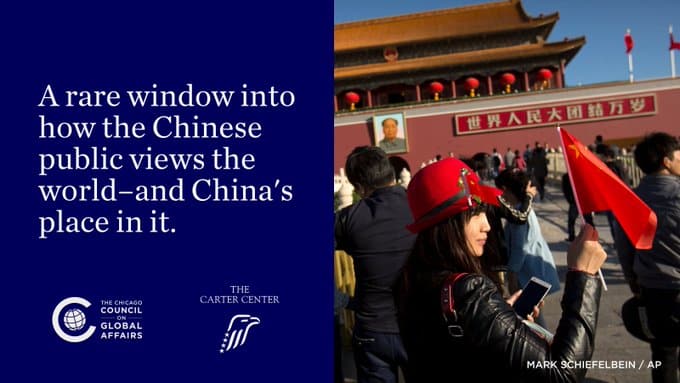Interview: Alliances Best Step Against Greater Conflicts
This interview with Yan Xuetong was originally posted on Global Times, but was later removed. It is still available on Google Cache.
Editor’s Note:
The Sino-US relationship has been experiencing some fluctuations lately. Yan Xuetong, director of the Institute of International Relations at Tsinghua University, has suggested that forming alliances abroad can help China smooth the bilateral ties. How will it work? How should the two sides further develop their relationship? Can China and the US escape the Thucydides Trap? The following content is based on Yan’s recent lecture “Strategies for China’s rise and changing international environment.”
GT: Could you expand on your view that the more allies China makes, the more balanced and stable the Sino-US relationship will be?
Yan: Some say that forging an alliance is a Cold War mind-set. On the contrary, it is nonalignment that demonstrates a Cold War mentality. The proposal of nonalignment was raised in 1956 by India’s first prime minister, Jawaharlal Nehru, Egypt’s second president, Gamal Abdel Nasser and Yugoslavia’s then president, Josip Broz Tito. And the very first conference of non-aligned heads of states or government, at which 25 countries were represented, was convened in September 1961. The Non-Aligned Movement came into being during the Cold War, and so has a Cold War mentality, while forming alliances has simply been human nature since ancient times.
The core of nonalignment is not to provide security assurances for other nations. All members from the Non-Aligned Movement are small and medium economies, and super powers have never engaged in such a thing. If China insists on nonalignment, how can we show our good will and justice? Are we going to tell the world that China is growing increasingly stronger, but China will never protect your safety?
For instance, Pakistan is in alliance not only with China, but also with the US. In terms of issues concerning Pakistan, there is no divergence between Beijing and Washington. If China can ally itself with every single ally of the US, there will be far less controversies between the two. But the problem is China is not willing to ally with US allies.
GT: You once said that both China and the US are refusing to admit that they’re in competition, Is that still true?
Yan: That’s correct. Beijing and Washington are now trying to ease tensions with each other by pretending to be friends. But this strategy is obviously not working. The root cause is the fact that the core of this bilateral ties is competition, rather than cooperation. Hence, my suggestion is to admit that we are competitors, and guide Sino-US ties toward healthy competition.
GT: You have mentioned that one of the significant agreements China and the US cannot reach is the promise to respect each other’s core interests. Is there any solution to the issue?
Yan: The conflicts of core interests between China and the US are constantly growing.
So far, there is no solution to the puzzle. All we can do is to prevent these controversies from escalating into war. But it is impossible to pursue a relationship without conflicts of core interests. It’s like you can prevent two students from fighting over a scholarship. Yet you cannot stop them from competing for it.
GT: How can China and the US avoid the Thucydides Trap?
Yan: The term “trap” has been used a lot lately. Yet personally, I think the word can be very misleading. Is the trap created by nature or dug by someone else? If there is a Thucydides Trap for real, why haven’t other developed nations fallen into it? If certain countries did fall, how can you repeat the same mistake of others?
To answer the question of whether China and the US can escape the Thucydides Trap, one must first define what exactly a Thucydides Trap is. Is it a nuclear war, a conventional war, military conflict, arms race, competition over trade liberalization, or the moves such as the US sends a warship to China’s Nansha Islands and China stops it? If you ask me, I would say the trap refers to direct war.
Nevertheless, there is not even a Thucydides Trap between Russia and the US. If there is any warfare between them, it’s proxy war. Therefore, why can anyone assume that China is highly likely to fall into the trap because of its emergence?
GT: How do you see Washington’s rebalance to Asia-Pacific strategy?
Yan: In order to maintain US hegemony, Washington adopted the rebalancing strategy in the Asia-Pacific. For the White House, the problem is not whether this strategy is good or bad, but whether it could find another way if it gives up this one.
If there is nothing else, the rebalancing to the Asia-Pacific is the only choice left, regardless of its effect. Therefore, I believe the strategy will not be changed. It’s a political legacy for US President Barack Obama. And whoever assumes the office after him will not easily withdraw it, because I don’t think anyone will possibly find a better policy to safeguard US hegemony.
It means that China needs to think over how to deal with the strategy. There are many ways. Personally, I think the best option is to form an alliance. We need to strengthen our relationships with our traditional allies, align ourselves with new partners, and expand cooperation with nations that are not our allies.
The Communist Party of China used to call this an “united front.” What we should do today is the same – trying to forge an alliance with as many countries as possible.
Mar. 29, 2016 on Global Times and Google Cache
Read more here








